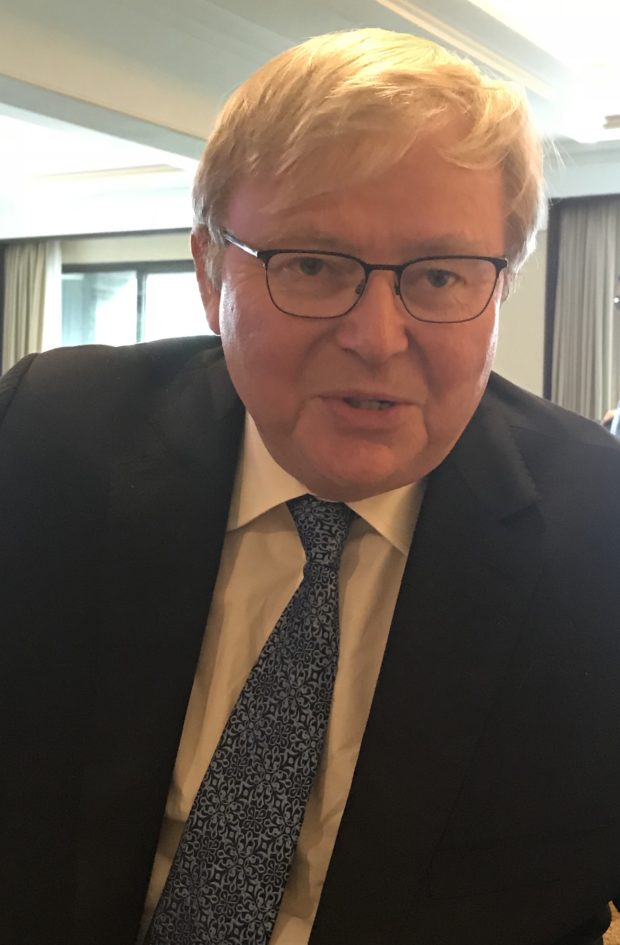Ex-Australia PM: PH can be friends with both US, China

Ex-Australia Prime Minister Kevin Rudd
As tension between the United States and China escalates, it’s possible for countries like the Philippines to pursue a “balanced” strategy and get the most out of its bilateral ties with each of the two economic superpowers.
This is according to Kevin Rudd, a former Prime Minister of Australia and the inaugural president of New York-based Asia Society Policy Institute (Aspi), a “think-do tank” dedicated to using second-track diplomacy to assist governments and businesses in resolving policy challenges within Asia and between Asia and the West.
Rudd—who is fluent in Mandarin and is considered as an authority on China as he began his career as a China scholar and has served as an Australian diplomat in Beijing before entering Australian politics—said the US-China relationship might in time become “more confrontational,” both on the economic and military fronts.
In an interview with Inquirer on Friday, Rudd, who was in town for a brief visit, said based on his experience as a former political leader of Australia, it was possible to pursue a “balanced” strategy towards China and the United States.
“In my case, what I’ve always said to Chinese friends is, one, we’re a long-standing ally of the US and that’s not about to change as we share too many common values. Two, we’re also a democratic country and therefore we have different political values from our friends in China and that’s not about to change either. Three, but like China we would like to develop a strong and mutually beneficial economic relationship and we can do that so long it’s consistent with one another’s core national economic interest,” Rudd said.
The same would apply to the Philippines, he said.
How to achieve a balance is a subject of a complex national debate which is never easy for any country, according to Rudd.
From China’s point of view, it was within its natural interest to want to bring the Philippines closer to its own strategic orbit, he added.
The territorial disputes in the South China Sea are obviously a structural challenge in the bilateral relations between the Philippines and China and that between China and the Association of Southeast Asian Nations (Asean).
Amid ongoing negotiations on a future code of conduct in the South China Sea, Rudd said it’s always important for Asean to have a common position on how to resolve competing territorial claims.
“For the Asean, there’s always strength to be had in unity,” he said.
Historically, Asean has had a diverse attitude when it comes to dealing with China. The Philippines, for one, which has pivoted to China while remaining a US ally, is deemed as among those still at crossroads.
In Aspi, Rudd said the institute hoped to be a “bridge-builder” within Asia and between Asia and the West. He has chaired an international panel which produced a report tracking the development of long-term security architecture in the Asia-Pacific region, titled “Preserving the Long Peace in Asia.”
Rudd’s visit comes ahead of the Philippines’ hosting of the 2018 Asia 21 Young Leaders global summit from Nov. 14-16. Over 90 young leaders from the region will gather to discuss timely issues under the theme “Leading with purpose in turbulent times.”
